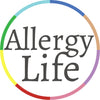What is Eczema?
Eczema is an inflammatory skin condition that causes the skin to become itchy, red, brown or purple depending on skin tone and can form rashes or lesions. There are several types of Eczema with different characteristics; a qualified healthcare provider can diagnose the type of Eczema and determine management strategies.
TYPES
The most common types of Eczema are:
- Atopic Dermatitis: A common type of Eczema is Atopic Dermatitis which is an Atopic Disease. Also referred to as Atopic Eczema, Atopic Dermatitis is a condition that causes irritation and inflammation of the skin. Atopic Dermatitis can range from mild to chronic conditions that can look different depending on skin colour, skin type and age.
- Contact Dermatitis: Contact Dermatitis is a skin condition that shows an itchy and sometimes weepy rash that usually appears after direct skin contact with an allergic trigger or an irritant.
- Dyshidrotic Eczema (Pompholyx Eczema): Dyshidrotic Eczema, also known as Pompholyx Eczema, usually affects the hands and feet with itchy, watery blisters that can be painful.
- Nummular Eczema (Discoid Eczema): Nummular Eczema, also known as Discoid Eczema, shows round-shaped patches of inflamed skin that may be itchy or scaly.
- Seborrheic Dermatitis: Seborrheic Dermatitis commonly affects areas around the scalp, face or torso that are around oil-producing (sebaceous) glands. Seborrheic looks like patches of scaly, flaking, oily skin or crusting yellow sores.
- Stasis Dermatitis: Stasis Dermatitis, also known as Venous Eczema, occurs where poor blood circulation leads to swelling, redness, itching, scaling skin and open sores.
The validity and severity of these types and symptoms are dependent on the individual, as determined by a qualified healthcare provider.
TESTING AND DIAGNOSIS
A Diagnosis can be conducted by a qualified healthcare provider specialising in skin conditions.
Diagnosis typically requires a skin examination with medical history. Other tests may be completed as determined by a qualified healthcare provider.
TREATMENT
If you experience or are in the presence of someone that encounters an immediate serious reaction (this may include difficulty breathing, wheezing, throat tightening, swelling, collapse, etc), call or have someone call triple zero (000) immediately.
Treatments for Eczema depend on a variety of factors based on the type of Eczema, the type of Skin, Age, Triggers, Environment, etc.
If you are experiencing skin-related symptoms that have similarities to a type of Eczema or have concerns/questions about Eczema in general, please speak to a qualified healthcare provider for diagnosis, to understand how to manage individual symptoms and also to set up an Action Plan in the case of symptoms.
Always present your Allergy Card, Medical Alert Bracelet or Necklace to ensure healthcare providers, family members, friends, colleagues and others are aware of your Allergy, Allergies or Health Conditions.
RANDOM FACT
"Eczema" was coined in 1817 by Thomas Bateman and Robert Willan, two English Doctors.
SUPPORT
Below are the support options available:
- Eczema Support Australia- Eczema Support Australia is a charity dedicated to connecting, informing and advocating for Australians affected by Eczema. They offer a growing number of support services for people with Eczema.- Click here to learn more
- CosMe App- CosMe is a "first of its kind" mobile app that is evidence-based and tailor-made by dermatologists for Allergic Contact Dermatitis (ACD). CosMe aims to bring educational information and guidance to the fingertips of those who are at risk of or suffering from ACD. Users can avoid high-risk ingredients to manage their ACD. Click here to learn more
- Online Peer Allergy Support Groups- These monthly online Support Groups allow Families with allergies and Adults with allergies to have open and genuine discussions about various topics related to their life with allergies. These groups are inclusive of all allergies. Click here to learn more
The information provided on Allergy Life Australia is to generally educate and inform you about living with allergies, intolerances and conditions, and is not intended as medical instruction or as a substitute for diagnosis, examination and advice by a qualified healthcare provider.
---
HAVE YOU HAD AN EXPERIENCE WITH ECZEMA OR KNOW SOMEONE THAT HAS? LET US KNOW IN THE COMMENTS BELOW




